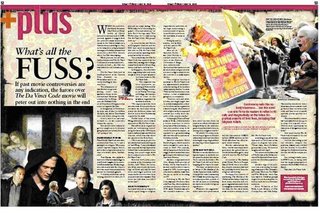By Rita Zahara, Channel NewsAsia
Posted: 22 May 2006 1659 hrs
SINGAPORE : The new National Kidney Foundation (NKF) management is seeking more than S$12 million in damages in a civil suit against its former chief, three former directors, and a business associate.
Lawyers explain that several unquantifiable claims, upon assessment before the courts, could tip the scales beyond S$12 million.
All the claims were detailed in an 85-page statement to the High Court on April 24, and NKF lawyers Allen & Gledhill say unquantifiable ones make up a substantial portion of it.
The new NKF claims it suffered losses not only through improper payments, but also in its credibility, resulting in a drop in donations and support from volunteers and agencies.
The charity alleges that the loss of its reputation and goodwill in the eyes of the public has resulted in a drop in donations from existing donors as well as those who had cancelled regular donations.
Projects such as the charity shows were also affected and there has been a drop in the number of volunteers and support from medical, government agencies and corporations, both within Singapore and abroad.
It was therefore seeking compensation for breach of duty from the five defendants, TT Durai, Richard Yong, Matilda Chua, Loo Say San, and Pharis Aboobacker.
Said defence lawyer K Shanmugam, "Part of it is quantified; part of it is unquantified. Some parts of it, NKF has put a dollar claim -- what is the claim amount -- and some part of it is a matter for the court to make an assessment after hearing evidence as to how much is the damages."
The quantifiable claims alone amount to:
- S$2.1 million in salaries, bonuses and other benefits "improperly" paid to Durai;
- S$4.08 million for loss of donations in the form of Lifedrops income;
- Over S$556,000 in legal costs incurred when Durai and the old NKF brought a defamation suit against Singapore Press Holdings;
- And S$5.28 million paid to three companies linked to Pharis Aboobacker.
Mr Pharis, a friend of Durai, is in
He is the last of the five defendants to be informed that he is being sued by the new NKF.
Durai has been given additional two weeks, till May 31, to file his defence.
Richard Yong and Loo Say San filed their defence last Friday while Matilda Chua filed hers late Monday.
Failure to file by the stipulated time would allow lawyers for the new NKF to apply for judgment against the relevant defendants.
Channel NewsAsia understands the trial is expected to begin in six to nine months.
Meantime, the criminal cases against Durai, Yong, Chua, Loo, and former NKF staff Ragini Vijayalingam will be mentioned again on June 19 at the Subordinate Courts.
At the pre-trial conference on Monday, the defence asked the prosecution for more documents pertaining to the charges.
The New NKF is suing Durai and the old NKF team for over $12 million. This includes:
(a) $2.1 mil in salaries/bonuses/benefits
(b) $4.08 mil for loss of donations
(c) $556k in legal costs incurred when Durai tried to sue SPH; and
(d) $5.28 mil paid to companies owned by Pharis Aroobacker, a friend of Durai who is in India.
I have no sympathy for anyone who would fly 1st class (even at biz class prices) or install gold taps using money from primary school kids hawking donation cards who thought that their endeavours were meant to help kidney patients.
Still, I'd doubt it is possible (or even logical) to sue for donations lost because of the scandal, which I'm sure Durai really, really didn't want either! Salaries and benefits? Well, unless he took the money via illegal means, how can you justify asking for money back from an employee? Football players don't return salaries paid out earlier just cos they don't score. At worse, they lose any extra monies that are forthcoming. Even seeking the $556k in legal costs may be tough. Durai would probably argue that the costs were incurred in trying to defend the (old) NKF's reputation. And indeed it was. It just didn't work out the way Durai had hoped!
The most convincing portion of the claim is probably the $5+ million paid to Durai's pal. If it can be proven that the goods and services were not delivered, one can make a case for the $$$ to be returned. However, this Aroobacker is in India, and short of him writing the new NKF's lawyers a cheque, I wonder if anything can be done to get the money back even if our courts agree that he should.
So is this a case of more good money chasing bad? Perhaps not.
Perhaps the strategy is go for the sky, and this might motivate Durai to return some of the money. (I understand from my lawyer/police friends that this is a common approach). Perhaps the new NKF's lawyers are working pro-bono (or will only claim fees if the claims are actually paid). Or perhaps it is just part of the continuing exercise to appease (ex?) NKF donors who feel they have yet to extract their pound of flesh unless Durai and co are either bankrupted or imprisoned.
Let the chase begin (again).
